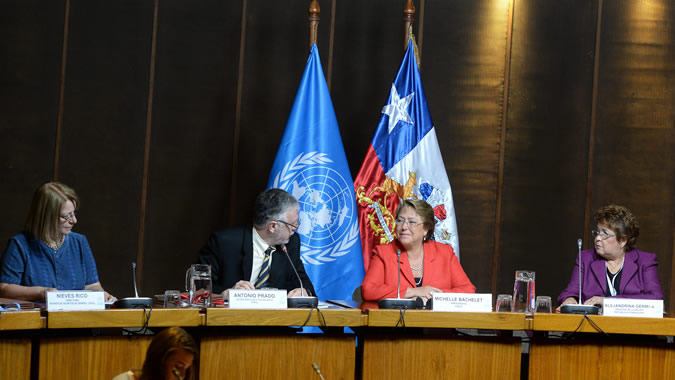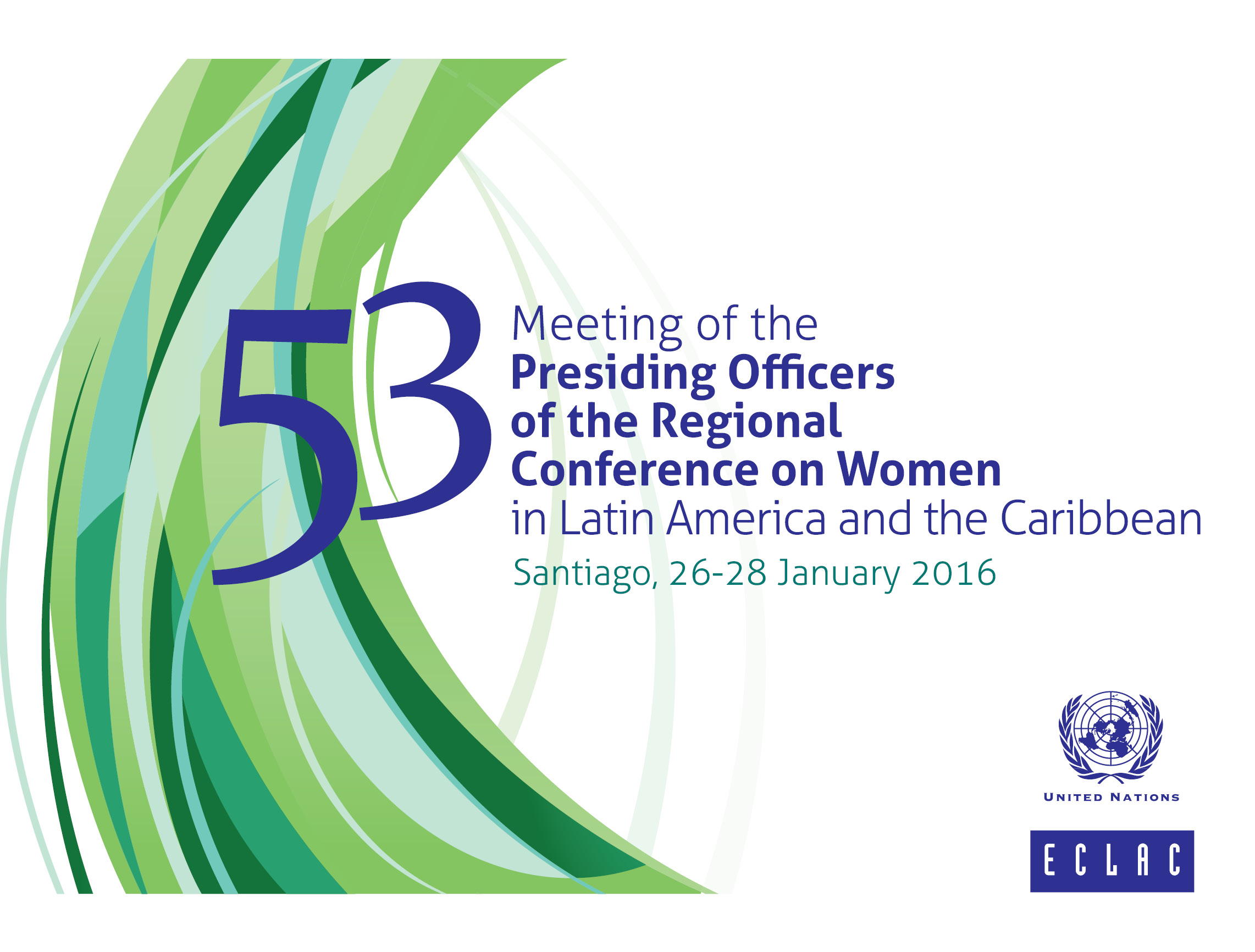Sustainable Development Will Not Be Achieved Without Gender Equality
Work area(s)
Ministers for Women’s Affairs, specialists and representatives from the civil society gathered at ECLAC posed the need for concrete plans and programs to guarantee gender equality in the framework of the 2030 Agenda.

The commitments made at the 2030 Agenda for Sustainable Development and the Paris Agreement for climate change can be met with gender equality and the active participation of women in all spheres of society, governmental authorities agreed at a meeting that started on Tuesday, January 26 at the headquarters of the Economic Commission for Latin America and the Caribbean (ECLAC) in Santiago, Chile.
The Fifty-Third Meeting of the Presiding Officers of the Regional Conference on Women in Latin America and the Caribbean was inaugurated by Michelle Bachelet, the President of Chile; Alejandrina Germán, Minister for Women’s Affairs of the Dominican Republic acting as Chair of the Regional Conference; and Antonio Prado, ECLAC’s Deputy Executive Secretary.
In her speech, Michelle Bachelet said that “in the fight for gender equality we can see that injustice draws back in some fields, such as in education and access to health care -in which there has been important progress- but it is not defeated by any means.” Therefore, in the case of Sustainable Development Goals (SDGs), it is urgent to count on appropriate indicators to follow-up the inequalities that affect women and to implement concrete public policies.
In this framework, the Chilean President committed herself to support the gender agenda in Chile and in the international arena.
Minister Alejandrina Germán, from the Dominican Republic, said that the assessment made after 20 years of the Beijing Platform for Action (1995) shows that no country has achieved full gender equality, an equality that must be a crosswise goal in the 17 SDGs involved in the 2030 Agenda for Sustainable Development, approved in September 2015. But “transversality will not be real if it does not include specific plans and programmes”, she said.
“We believe that sustainable development without gender equality it is not development nor sustainable,” said ECLAC’s Deputy Executive Secretary, Antonio Prado, who analyzed the situation of the 17 SDGs. In 11 of them, he said, there are gender goals. But they lack goals in key objectives such as the SDG 7 on sustainable development, the SDG 9 on industry, innovation and infrastructure, the SDG 12 on consumption patterns and responsible production and the SDG 16 on peace, justice and solid institutions, among others.
Together with sharing the progress made and challenges related to the three autonomies for women (economic, physical and in decision-making) in the region, Prado called for taking advantage of the existing regional architecture, in which the blocs and forums of cooperation are registered as well as ECLAC’s subsidiary organs, with the aim of implementing the regional agenda.
On her part, Luiza Carvalho, UN Women Regional Director for the Americas and the Caribbean, invited attendees to take active participation in the special Session of regional consultation previous to the sixtieth session of the Commission on the Status of Women (CSW), convened by UN Women jointly with ECLAC.
During the meeting at ECLAC, which ends on Thursday, January 28, Ministers for Women’s Affairs will learn about the preparation status for the XIII Regional Conference on Women in Latin America and the Caribbean (October 25-28, 2016), which will address gender equality and the autonomy of women as the core for sustainable development.
Related content
La igualdad de género en la Agenda 2030 para América Latina y el Caribe
Presentación de Antonio Prado, Secretario Ejecutivo Adjunto de la CEPAL, en la reunión de la Mesa Directiva de la Conferencia Regional sobre la Mujer de América Latina y el Caribe.
Ministras de la Mujer debatirán sobre la articulación de los ODS con la agenda de género de la región
En el evento se espera la participación de la Presidenta de Chile, Michelle Bachelet.

Fifty-third meeting of the Presiding Officers of the Regional Conference on Women in Latin America and the Caribbean
The Presiding Officers of the Regional Conference on Women in Latin America and the Caribbean was held their fifty-third meeting from 26 to 28 January 2016 at the headquarters of the Economic…
Subregional headquarter(s) and office(s)
Subregional Headquarters, MexicoRelated link(s)
Country(ies)
- Latin America and the Caribbean
Contact
Public Information Unit
- prensa@cepal.org
- (56 2) 2210 2040
